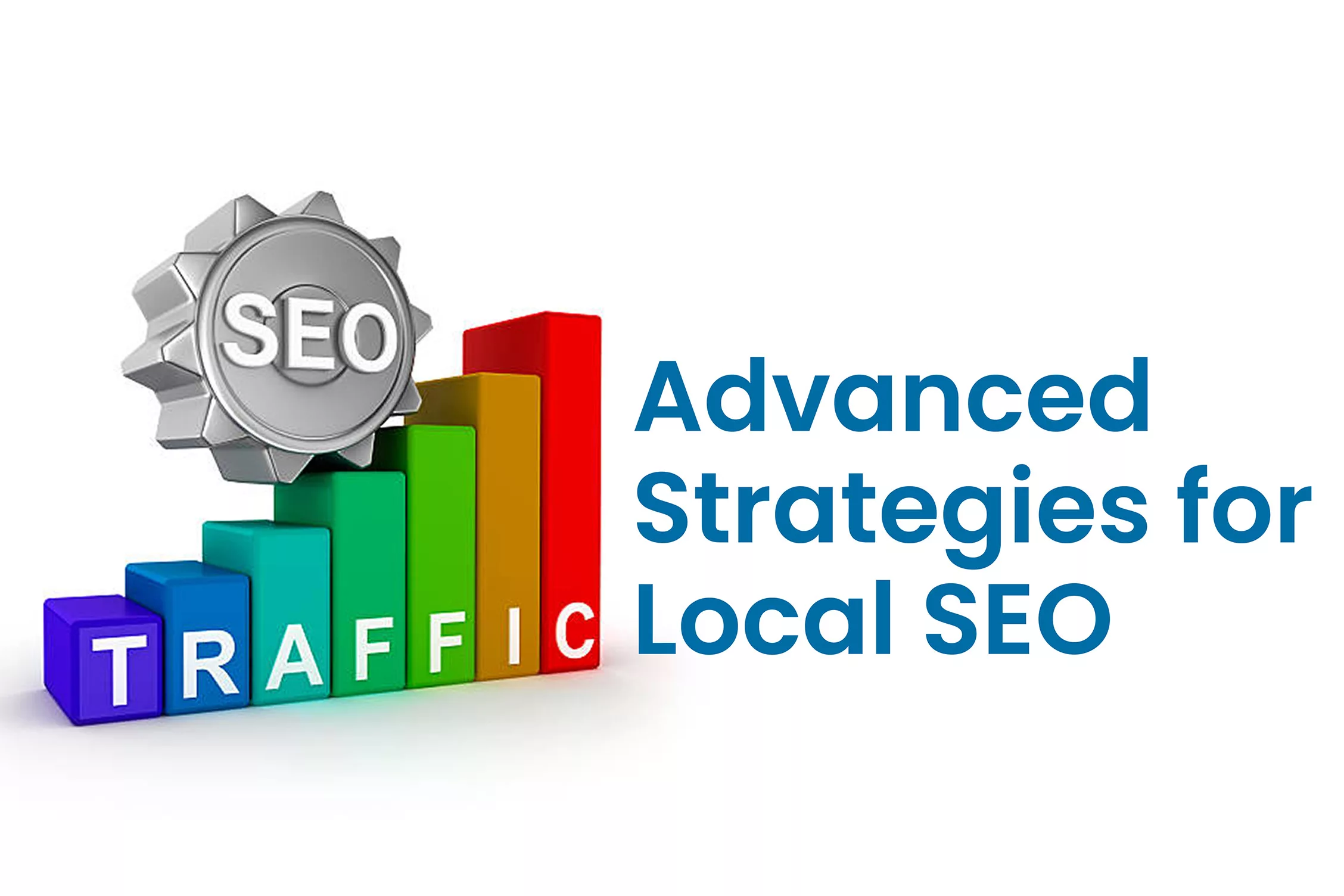97% of people explore a local brand through search engines. That said, local SEO serves as the backbone of your business expansion.
Although local SEO brings in notable results, you must know what local SEO strategies work in the first place. To help you out in this, we have drafted this article where we’ll cover how local SEO works and its tips.
So, you can apply the functional strategies without spending extra time and effort in experimenting.
How Local Search Works

Local search is a location based SEO in which search engines like Google, Bing, or Yahoo deliver location-specific results to users when they search for products or services near them. This process involves several key elements:
- User Intent: When someone performs a local search, they intend to find something specific within a geographic area. They might be looking for a restaurant, a hardware store, a dentist, or other local business.
- Location Signals: Search engines use various signals to determine the user’s location, such as the device’s GPS, IP address, or the location specified in the search query.
- Keyword Relevance: Matching the user’s query with relevant keywords and phrases, search engines provide closely related to what the user is looking for.
- Online Directories: Search engines pull information from online directories to display in search results.
6 Top and Advanced Strategies for Local SEO

Keyword Research for Local SEO
Keyword research aims at Local SEO for service area businesses, connecting your business with potential customers in your area. Usually, these keywords include city names, neighborhoods, or “near me.”
Below is how to identify these keywords and optimize content using them.
Identifying Relevant Local Keywords
Brainstorm a list of keywords that accurately describe your business’s services or products and your location. Utilize keyword research tools such as Google Keyword Planner or SEMrush to discover relevant local keywords and gather data on their search volumes.
Long-Tail Keywords
Long-tail keywords are longer, more specific phrases that can be one of your highly effective local SEO plans. They often indicate a stronger intent to engage with a business.
Competitor Analysis
Analyze your local competitors’ websites to uncover the keywords they are targeting. This analysis can provide insights into the most relevant keywords in your industry, helping you refine your own strategy.
Keyword Grouping
To organize your keywords effectively, group them based on relevance. For instance, you can create groups for primary services, location, and long-tail variations.
Search Intent
Understanding the search intent behind each keyword is crucial. It helps tailor your content to match user needs, whether they are seeking information, products, services, or directions.
Local Keyword Trends
Stay informed about local keyword trends and seasonality. Some keywords may experience fluctuations in search volume depending on the time of year or local events.
On-Page Optimization with Local Keywords
After identifying your target keywords, incorporate them naturally into your website’s on-page elements. These elements include title tags, meta descriptions, headers, and content. Ensure your content is reader-friendly and doesn’t feel stuffed with keywords, as Google penalizes keyword stuffing.
Tracking and Adjustment
Consistently monitor your chosen keywords’ performance using tools like Google Analytics and Google Search Console.
Google My Business (GMB) Optimization

Google Maps local SEO is a powerful tool for local businesses to enhance their online presence and connect with local customers. Optimizing your GMB listing is essential for ensuring that your business is easily discoverable in local search results. Here’s a detailed look at GMB optimization:
Setting Up or Claiming Your GMB Listing
If you haven’t already, the first step is to claim or create your GMB listing. Visit the Google My Business website and follow the setup or claim process. Ensure that all your provided information is accurate and up-to-date.
Completing Your GMB Profile with Accurate Information
Provide comprehensive and accurate information about your business. This includes your business name, address, phone number (NAP), website URL, hours of operation, and categories that describe your business.
Images and Videos
Add high-quality images and videos that showcase your business. This includes photos of your storefront, products, services, and the interior of your establishment. Visual content helps potential customers get a better sense of what you offer.
Business Description
Crafting a concise and compelling business description is one of the local search optimization techniques. Highlight what makes your business unique and describe your products or services. Use keywords that potential customers might use when searching for businesses like yours.
Reviews and Ratings
Encourage customers to leave reviews on your GMB listing. Positive reviews can significantly boost your online reputation and attract more customers. Respond to reviews, both positive and negative, to engage with your audience and show that you value their feedback.
Posts and Updates
Use the GMB Posts feature to share news, promotions, events, and updates about your business. These posts appear in your GMB listing and can capture the attention of potential customers.
Attributes
Add relevant attributes to your listing. These can include features like “women-led,” “outdoor seating,” “free Wi-Fi,” and more, depending on what applies to your business.
Insights and Analytics
Regularly check the GMB Insights section to gather data on how users interact with your listing. This information can help refine your GMB strategy and better understand your audience.
COVID-19 Updates
If relevant, provide updates regarding your business’s COVID-19 safety measures, like mask requirements, contactless payments, and modified hours of operation.
Multiple Locations
If your business has multiple locations, ensure that you create separate GMB listings for each and optimize each one individually.
Local Link Building

Local link building is one of the directly influential local SEO strategies. It involves acquiring backlinks from other websites, particularly those within your local area, to improve your website’s authority and visibility in local search results. Here’s a detailed look at local link building:
Local Business Directories
Submit your business to reputable local business directories, such as Yelp, Yellow Pages, and industry-specific directories. Ensure that your NAP (Name, Address, Phone number) information is consistent across these directories.
Chamber of Commerce and Associations
Join local chambers of commerce and industry associations. They often include your business on their websites, providing valuable backlinks.
Local Media and Press
Get featured in local newspapers, magazines, and blogs. This can lead to high-quality local backlinks. Additionally, you can submit press releases about your business’s events, achievements, or newsworthy updates.
Local Partnerships and Sponsorships
Collaborate with other local businesses and organizations. These partnerships can result in links from their websites, especially if you sponsor events or activities in your community.
Local Bloggers and Influencers
Build relationships with local bloggers and influencers. They may write about your business or link to your website in their posts.
Create Local Content
Develop content that’s specific and aligns with your local SEO strategies. For example, create guides, resources, or blog posts about local events, landmarks, or the history of your community. This can attract backlinks from local websites and generate local interest.
Guest Posting
Write guest posts for local websites or blogs. This allows you to include a backlink to your website in the author bio or within the content itself.
Mobile Optimization

Mobile optimization is a critical aspect of modern local SEO strategies. As 64% of searches now occur on mobile devices, ensure your website is mobile-friendly and offers an excellent user experience. Here’s a detailed look at mobile optimization:
Responsive Web Design
Adopt a responsive web design, which means your website automatically adjusts its layout and content to fit various screen sizes, from smartphones to tablets. This ensures a consistent and user-friendly experience across all devices.
Mobile Page Speed
Optimize your website’s loading speed for mobile users. Use tools like Google PageSpeed Insights to identify and address performance issues. Faster-loading pages lead to better user experiences and improved search rankings.
Mobile-Friendly Navigation
Apply local SEO strategies to simplify your website’s navigation for mobile users. Use a mobile-friendly menu and ensure that links and buttons are large enough and easy to tap without accidentally clicking the wrong one.
Content Optimization
Prioritize concise and scannable content for mobile users. Break up text with headings, bullet points, and shorter paragraphs. Consider using expandable content sections for more in-depth information.
Mobile-Friendly Forms
If your website includes forms for contact or lead generation, make sure they are mobile-friendly. Use larger input fields and minimize the number of required fields for mobile users.
Optimize Images and Media
Compress images and videos for faster loading on mobile devices. Use responsive image and video elements to ensure they adjust to different screen sizes.
User Testing
Regularly test your website on various mobile devices and browsers to identify any issues or inconsistencies in the mobile experience. User testing can help you address usability problems promptly.
Local Mobile Optimization
For local businesses, ensure your website is optimized for local mobile search. Include location-specific keywords, directions, and a click-to-call phone number for easy access.
Mobile Compatibility Across Platforms
Ensure your website works smoothly on Android and iOS devices, considering variations in browsers and operating systems.
Schema Markup for Local SEO

Schema markup helps search engines understand the content and context of your web pages. It provides structured data to enhance search results with rich snippets, knowledge panels, and other elements. This makes your business more visible and attractive to potential customers. Here’s a detailed look at schema markup for local SEO strategies:
Common Schema Markup Types for Local SEO
- LocalBusiness Schema: This markup provides detailed information about your local business, including name, address, phone number (NAP), business hours, and more.
- Organization Schema: While not specific to local SEO, it helps establish the identity and credibility of your business. It includes your business name, logo, and contact details.
- Review Schema: If your business has customer reviews, using review schema can lead to star ratings and review snippets in search results, making your business more appealing to users.
- Event Schema: If your business hosts events or promotions, an event schema can be used to provide details about these events in search results.
- Product Schema: If you’re selling products, product schema can enhance your product listings in search results with images, prices, and availability information.
- Service Schema: For service-based businesses, service schema can help describe the services you offer, including descriptions and prices.
Implementing Schema Markup
Schema markup can be added to your website’s HTML code. Use correct schema types and properties to accurately represent your content.
Testing Schema Markup
Use Google’s Structured Data Testing Tool or the Rich Results Test to verify that your schema markup is correctly implemented and recognized by search engines.
Updating and Maintaining Schema Markup
Keep your schema markup up to date to reflect any changes in your business, such as updated hours of operation or new services.
Local Business Data
Ensure that the business information in your schema markup is consistent with what’s on your Google My Business (GMB) listing.
Online Reviews and Reputation Management

Online reviews and reputation management are essential local SEO strategies. It significantly influences potential customers’ perceptions of your business. Managing your online reputation involves actively monitoring, encouraging positive reviews, and effectively addressing negative feedback.
Here’s a detailed look at online reviews and reputation management for local businesses:
Encouraging Positive Reviews
Actively encourage satisfied customers to leave positive reviews. You can do this by:
- Providing excellent customer service and products.
- Politely asking customers for reviews via email, social media, or in person.
- Creating review request cards or links to make the review process easy.
Negative Review Handling
Negative reviews are inevitable, but how you handle them can make a significant difference. Here’s how to manage negative reviews effectively:
- Respond promptly: Address negative reviews immediately to show you care about customer feedback.
- Stay professional: Maintain a professional and courteous tone in your responses, regardless of the nature of the review.
- Apologize and empathize: Apologize for the customer’s negative experience and express empathy for their concerns.
- Offer a solution: If appropriate, propose a solution to address the issue, whether it’s a refund, replacement, or an opportunity to revisit the problem.
- Take the conversation offline: Encourage the reviewer to contact you directly to resolve the issue rather than airing grievances publicly.
Monitor Your Online Reputation
Regularly monitor online review platforms, social media, and relevant forums for mentions of your business. There are tools and services available to help streamline this process.
Consistency in Responses
Maintain consistency in your responses to reviews. Whether positive or negative, show that you take customer feedback seriously.
Leverage Positive Reviews
Positive reviews serve as valuable marketing tools. Share them on your website, social media profiles, and marketing materials to build trust and credibility with potential customers.
Review Guidelines and Policies
Establish clear review guidelines and policies for your business, including content moderation guidelines if applicable. These help maintain the quality and tone of reviews associated with your business.
Proactive Reputation Management
In addition to responding to reviews, consider proactive reputation management strategies such as:
- Encouraging satisfied customers to provide testimonials or case studies for your website.
- Monitoring and addressing brand mentions or discussions across the web, not just on review platforms.
- Generating and sharing user-generated content, such as customer photos or videos, that highlight positive experiences with your business.
Leverage Reputation Management Tools
Explore online reputation management tools and services that can help you monitor and manage your online presence more effectively.
Increase Search Engine Rankings with Hired SEO Experts
Found local SEO strategies worth it but lack the expertise to apply them? VinnCorp is there to help you.
We are a remote talent company with top-tier SEO experts. Our experts are vetted through an exclusive process while we provide one according to your requirements. From local SEO to on and off page optimization, they are well-equipped with expertise and experience to design a tailored strategy for you.
Get in touch with us to dominate local SEO.



